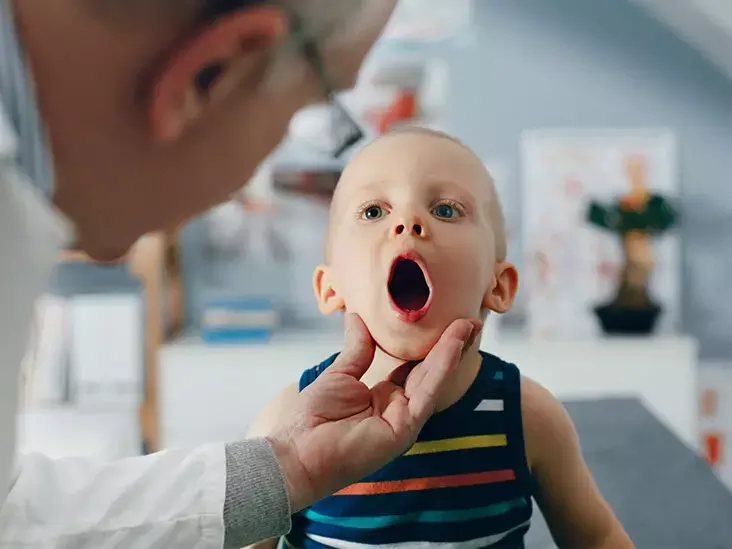- Home
- Medical news & Guidelines
- Anesthesiology
- Cardiology and CTVS
- Critical Care
- Dentistry
- Dermatology
- Diabetes and Endocrinology
- ENT
- Gastroenterology
- Medicine
- Nephrology
- Neurology
- Obstretics-Gynaecology
- Oncology
- Ophthalmology
- Orthopaedics
- Pediatrics-Neonatology
- Psychiatry
- Pulmonology
- Radiology
- Surgery
- Urology
- Laboratory Medicine
- Diet
- Nursing
- Paramedical
- Physiotherapy
- Health news
- Fact Check
- Bone Health Fact Check
- Brain Health Fact Check
- Cancer Related Fact Check
- Child Care Fact Check
- Dental and oral health fact check
- Diabetes and metabolic health fact check
- Diet and Nutrition Fact Check
- Eye and ENT Care Fact Check
- Fitness fact check
- Gut health fact check
- Heart health fact check
- Kidney health fact check
- Medical education fact check
- Men's health fact check
- Respiratory fact check
- Skin and hair care fact check
- Vaccine and Immunization fact check
- Women's health fact check
- AYUSH
- State News
- Andaman and Nicobar Islands
- Andhra Pradesh
- Arunachal Pradesh
- Assam
- Bihar
- Chandigarh
- Chattisgarh
- Dadra and Nagar Haveli
- Daman and Diu
- Delhi
- Goa
- Gujarat
- Haryana
- Himachal Pradesh
- Jammu & Kashmir
- Jharkhand
- Karnataka
- Kerala
- Ladakh
- Lakshadweep
- Madhya Pradesh
- Maharashtra
- Manipur
- Meghalaya
- Mizoram
- Nagaland
- Odisha
- Puducherry
- Punjab
- Rajasthan
- Sikkim
- Tamil Nadu
- Telangana
- Tripura
- Uttar Pradesh
- Uttrakhand
- West Bengal
- Medical Education
- Industry
Coblation cryptolysis effectively reduces tonsil caseum-induced halitosis

Halitosis, is a social problem affecting many patients seeking help from clinicians. Tonsil stones can cause halitosis and especially occur in crypts of palatine tonsils. Coblation cryptolysis is an alternative method for tonsil caseum treatment however, its effectiveness is still unclear.
ÖmerErdur and colleagues from the Department of Otorhinolaryngology, Selcuk University, Faculty of Medicine, Konya, Turkey have recently found out that coblation crptolysis is an effective, safe, minimally invasive and practical alternative method in treatment of halitosis due to tonsil caseums.
The study is published in the American Journal of Otolaryngology.
The coblation technology includes passing a radiofrequency bipolar electrical current through a medium of normal saline which results in the production of a plasma field of sodium ions.
The researchers aimed to investigate the effectiveness of coblator cryptolysis treatment method in chronic caseous tonsillitis-induced halitosis. They included a total of 28 patients who underwent coblator cryptolysis surgery for halitosis due to chronic caseous tonsillitis.
The efficacy of treatment and the presence of caseoma were evaluated with the Finkelstein test, organoleptic test and VAS before the procedure and at the 6th month control after the treatment was completed.
The study results showed the following findings-
- At the 6th month follow-up after the procedure (a single coblation cryptolysis) it was found that 23 of the patients (82.1%) had no caseum.
- There was a statistically significant change in Finkelstein measurements before and after the procedure (p < 0.001).
- Organoleptic measurements demonstrated that 21 patients had no halitosis postoperatively and the mean organoleptic test score was calculated as 0.39 ± 0.79 after the procedure.
- The recovery was statistically significant (p < 0.001).
- The mean VAS score before coblation cryptolysis was 8.0 ± 1.33 (range 5–10).
- On the other hand 6 months after a single coblation cryptolysis session, the mean VAS score was 1.25 ± 1.78 (range: 0–6).
- This difference was statistically significant (p < 0.001).
Hence, it was concluded that "coblation crptolysis is an effective, safe, minimally invasive and practical alternative method in treatment of halitosis due to tonsil caseums."
https://doi.org/10.1016/j.amjoto.2021.103075
Dr. Nandita Mohan is a practicing pediatric dentist with more than 5 years of clinical work experience. Along with this, she is equally interested in keeping herself up to date about the latest developments in the field of medicine and dentistry which is the driving force for her to be in association with Medical Dialogues. She also has her name attached with many publications; both national and international. She has pursued her BDS from Rajiv Gandhi University of Health Sciences, Bangalore and later went to enter her dream specialty (MDS) in the Department of Pedodontics and Preventive Dentistry from Pt. B.D. Sharma University of Health Sciences. Through all the years of experience, her core interest in learning something new has never stopped. She can be contacted at editorial@medicaldialogues.in. Contact no. 011-43720751
Dr Kamal Kant Kohli-MBBS, DTCD- a chest specialist with more than 30 years of practice and a flair for writing clinical articles, Dr Kamal Kant Kohli joined Medical Dialogues as a Chief Editor of Medical News. Besides writing articles, as an editor, he proofreads and verifies all the medical content published on Medical Dialogues including those coming from journals, studies,medical conferences,guidelines etc. Email: drkohli@medicaldialogues.in. Contact no. 011-43720751


